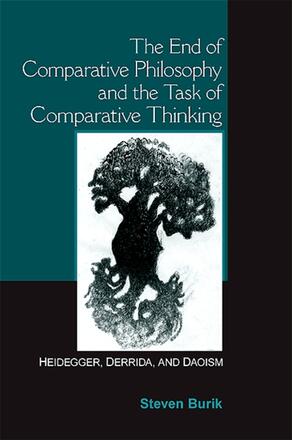
The End of Comparative Philosophy and the Task of Comparative Thinking
Heidegger, Derrida, and Daoism
Alternative formats available from:
A work of and about comparative philosophy that stresses the importance of language in intercultural endeavors.
Description
How do differences in language influence comparative philosophy? Although the Orientalism famously described by Edward Said is rare today, Steven Burik maintains that comparative philosophy often subtly privileges one tradition over another since certain conceptual schemes are so embedded in Western languages that it is difficult not to revert to them. Arguing for a new approach that acknowledges how theory and practice cannot be separated in comparative philosophical endeavors, Burik provides nonmetaphysical, deconstructionist readings of Heidegger and Derrida and uses these to give a new reading of classical Daoism. The ideas of language advanced therein can aid the project of comparative philosophy specifically, and philosophies generally, in trying to overcome ways of thinking that have dominated Western philosophy for twenty-five hundred years and still frustrate intercultural encounters.
Steven Burik teaches philosophy at Singapore Management University and also at the Center for American Education, Broward College, Singapore.
Reviews
"…Burik's book is an important contribution to contemporary East-West philosophic dialogue." — Philosophy East & West
"Steven Burik's The End of Comparative Philosophy and the Task of Comparative Thinking is a daring and imaginative essay in re-reading Daoism, particularly the Daodejing and the Zhuangzi, based on a philosophy of language deriving from Heidegger and Derrida." — International Journal for Philosophy of Religion